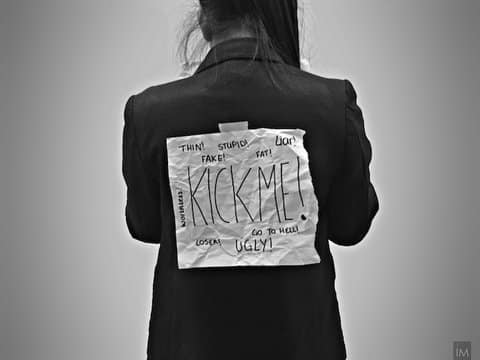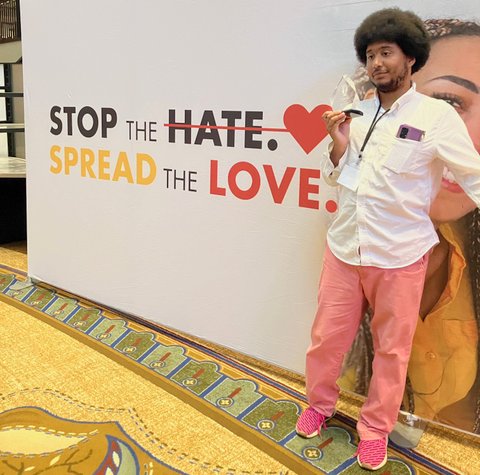
28 Jul The Internet Brings Out the Worst in Us

Commentary, Ronvel Sharper
The veil of anonymity is said to reveal the worst in people. That’s true, whether it’s calling someone a barrage of slurs over an online game or questioning someone’s intelligence for asking a simple question. The internet is a beautiful thing. It’s also the modern “Wild West,” one could say. It feels like a lawless place where people can say or do whatever they want no matter who they hurt. So where’s the line between just being a mild inconvenience or a total jerk — or actually living life driving people to depression or, even worse, to suicide?
Back in ’08 when I was playing online multiplayer games for the first time, I was also called slurs for the first time for being “too good” at the game. People were just unbearably toxic back then. Despite that, you usually forgot about it in a day or two.
Nowadays? The same thing happens but on a much grander scale, and it goes even further than the occasional n-word or s-word or even the bundle of sticks slur. Nowadays, people are reviving that ye ol’ 1850s racism and bigotry. For real, who even says “pickaninny” now? Why is this hatred so mainstream?
The rates of online hate and harassment are increasing, Axios reports. According to an American Defamation League study, “more than half of Americans have experienced hate or harassment online.” This phenomenon has been rising the past year — and is eerily especially prominent amongst teenagers, with more than half in the study saying they were harassed in some way over the past year.
Adults Should Build Kids Up, So Bullies Can’t Tear Them Down
After President Obama was elected, some people started pretending racism was a thing of the past, but plenty of events — like the murder of George Floyd — prove it most definitely is not. Racism — even here in California — is anything but dead; rather, it is simply subtler. I still remember one time in high school where a lady held her purse when we walked past each other on the sidewalk. Who knows how many jobs I didn’t get due to my Afro American name?
Religious and ethnic minorities, including Muslims and African Americans like me, as well as the LGBTQ+ community are often targeted. The ADL study reports that the most targeted group is transgender folks, with 75% saying they have been targeted or harassed in the past year. Why is this happening? Why are trans people the new social punching bag?
Dartmouth professor and historian Randall Balmer told the 19th News it could be a classic case of the Republican Party needing a scapegoat to blame everything on.
“They (Republicans) have an interest in keeping the base riled up about one thing or another, and when one issue fades, as with same-sex relationships and same-sex marriage, they’ve got to find something else,” Balmer said.
In other words, trans folks are the unlucky minority in the GOP’s crosshairs — making them the face of everyone’s problems.
The right has a rather unique affection for fear mongering — “warning” people of the repercussions of mass migration, calling drag queens and other LGBTQ+ folks child groomers, claiming teachers are politically motivated, or the good ol’ “Black people are merciless killers and thieves and will ruin your neighborhoods.”
Elon Musk said he would make Twitter a free speech haven. I guess that kind of stuff I was just talking about was the “free speech” he wanted to protect.
As soon as Musk took over Twitter the use of slurs on the platform increased SIGNIFICANTLY, but don’t just take it from me. According to the Associated Press, “A racial epithet used to attack Black people was found more than 26,000 times, three times the average for 2022. Use of a slur that targets trans people increased 53%, while instances of an offensive term for homosexual men went up 39% over the yearly average.” Needless to say, slurs against Jewish and Latin people also increased.
Twitter’s lack of moderation has led to the idea that racism and, especially, transphobia are something to be taken lightly when, in reality, they are taking lives both directly and indirectly. Someone with Musk’s vast amounts of power and wealth could be working to build a better tomorrow, and yet he seems to focus the majority of his time liking and retweeting transphobic content and right-wing propaganda on a daily basis.
Much good has come from the internet, but it also comes with the trade-off of people making it an artform to be unpleasant jerks for their own amusement.
If you don’t see it, let me tell you: This is all connected. The right tries to divide people and make us afraid of each other, which leads to hateful ideas. Then, the likes of Musk give people who should be nobodies a platform, giving racists so much opportunity to spread hateful rhetoric everywhere — just racism all around.
So what should we do about these trolls?
It’s frustrating when you’re the victim of a hate campaign. But don’t feel trapped; don’t feel that you must respond. You might have heard the saying “don’t feed the trolls.” Yurina Melara Valiulis, who works for the state of California, told one of my colleagues that when you see disinformation online, you shouldn’t engage with it. Don’t try to disprove it. Don’t argue with the poster. Just ignore it and report it. Same goes when people say hateful stuff online. Sometimes, at least.
The idea is to not give cyberbullies attention, but ignoring them doesn’t always work. Psychologist Lauren Hoffman told Mashable that, when ignored, some trolls would just get nastier and nastier. So what should we do? There’s no easy answer.
“Pick your battles,” Hoffman said.
If you really must respond, I believe in fighting with kindness. Bullies on the internet absolutely hate that as, in their eyes, they’re simply being patronized. “Just imagine what happens when they get kindness in return? POP! Their ego is instantly deflated and they likely move onto their next target,” writes Eva Lewis, a social media manager.
This resource is supported in whole or in part by funding provided by the State of California, administered by the California State Library in partnership with the California Department of Social Services and the California Commission on Asian and Pacific Islander American Affairs as part of the Stop the Hate program. To report a hate incident or hate crime and get support, go to CA vs Hate.






No Comments